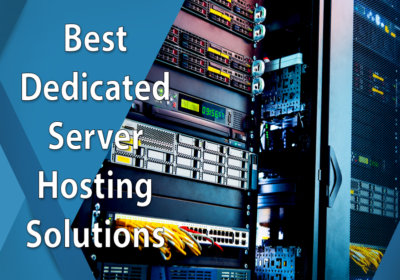
Your Shield Against Digital Threats: Essential Considerations for Cybersecurity Seminars
Cybersecurity has become a major worry for both individuals and corporations in today’s linked world. Since cyber dangers are changing at a never-before-seen rate, attending educational seminars has become crucial to keeping up to date and safeguarding our digital assets. But not every cybersecurity lecture is made equal. A number of aspects that might greatly affect the efficacy and worth of your learning experience must be carefully considered in order to make the best decision. When choosing cybersecurity courses that will actually improve your knowledge and abilities, this thorough guide examines eight important criteria to take into account.
1. Expertise and Credentials of the Instructors
The knowledge of its lecturers is the cornerstone of every worthwhile cybersecurity seminars. Examine the speakers’ backgrounds and credentials in detail while assessing seminars. Seek out experts with a track record of success in cybersecurity, a wealth of practical expertise, and pertinent industry qualifications. In addition to having academic understanding, instructors should have real-world experience with cyber risks and events. Equally crucial is their capacity to convert difficult technical ideas into language that is easy to comprehend. Take into account if they have worked with respectable firms, produced research, or contributed to cybersecurity groups. The caliber of material you will obtain and the usefulness of the knowledge you acquire are directly impacted by the teachers’ credibility.
2. Curriculum Relevance and Current Trends
In the ever changing sector of cybersecurity, solutions from the past might not be enough to counteract the risks of the present. Make sure the seminar’s content covers both new developments and contemporary cybersecurity issues. Current defense tactics, changing threat landscapes, and new attack vectors should all be covered in the material. Seek for lectures that cover contemporary subjects like cloud security, cybersecurity using AI, zero-trust architecture, and the security issues associated with remote work. The core ideas and the most recent advancements should be balanced throughout the curriculum. Steer clear of courses that excessively emphasize antiquated methods or technology. A relevant curriculum guarantees that the information you learn will be useful in the near future and may be used right away to today’s cybersecurity issues.
3. Target Audience and Skill Level Alignment
Diverse occupational backgrounds and skill levels are catered to by different cybersecurity workshops. Determine your present level of expertise and professional goals before enrolling. While some workshops cater to seasoned experts looking for advanced information, others are intended for novices with little to no prior expertise in cybersecurity. To optimize learning efficacy, make sure the seminar’s degree of difficulty corresponds with your level of knowledge. Think about if the information is intended for general staff members, compliance officials, corporate leaders, or technical specialists. Either too much complexity or not enough challenge might arise from a mismatch between your skill level and the seminar’s intended audience. Examine the requirements and learning objectives to see if the seminar fits your present skill level and professional development objectives.
4. Hands-On Learning Opportunities and Practical Applications
The study of cybersecurity requires more than just theoretical understanding. Look for seminars that provide significant experiential learning opportunities and real-world applications. Live demonstrations, simulated cyberattacks, incident response drills, and lab sessions where participants may practice security tools and tactics are a few examples of these. In addition to offering invaluable expertise that can be immediately implemented in real-world situations, practical components aid in the consolidation of theoretical ideas. Seek out seminars that leverage current threat scenarios, real-world case studies, or actual security events as teaching tools. The confidence and competency are enhanced when the skills can be rehearsed in a risk-free environment. The interactive elements can be group discussions, problem-solving, and cooperative activities that enhance the process of learning and enable students to memorize key cybersecurity concepts.
5. Certification and Professional Recognition Value
Think about if the seminar leads to professional certifications that are accepted in the cybersecurity sector or delivers certificates. While some seminars prepare participants for significant cybersecurity certifications, others offer continuing education credits that support the maintenance of current certificates. Examine any provided certificates’ legitimacy and industry recognition. Determine whether the seminar sponsor is accredited by the proper educational or professional agencies. Certificates are capable of boosting your professional image and demonstrating your commitment to lifelong learning, however, they should not be the primary factor in you attending. Find out whether the certification standards align with your career goals and whether the employers in your field, current or potential, would value the designation.
6. Format Flexibility and Accessibility Options
Cybersecurity seminars are offered these days in a multitude of formats to accommodate various schedules and learning styles. Reflect on which virtual, hybrid, or in-person learning environments you would enjoy. Nevertheless, in contrast to internet seminars that are cost-effective and convenient, direct-to-face seminars enable networking and physical connection, and hybrid seminars comprehensive the advantages of both designs. Become conversant with the technicalities of a virtual seminar and make sure you have the equipment and a good internet connection. Take into account time zone variations for in-person meetings and the accessibility of recorded material for future viewing. Examine if the structure permits sufficient interaction between participants and teachers. To get the most out of your education, pick a format that fits your learning preferences, work obligations, and unique situation.
7. Networking and Community Building Potential
Professional networking and community development are greatly enhanced by cybersecurity workshops. Think about the possibility of making connections with professionals who share your interests, professionals in the field, and possible mentors or partners. Assess if the structure and presentation of the lecture encourage fruitful exchanges amongst attendees. Seek for seminars that incorporate social gatherings, discussion boards, group activities, or focused networking sessions. Because of the collaborative nature of the cybersecurity sector, establishing business partnerships may be extremely beneficial for information exchange and career advancement. Take into account the participants’ varied backgrounds, positions, and degrees of expertise. diversified viewpoints and more extensive learning possibilities can be offered by a diversified participant population. Long after the seminar is over, strong professional networks are frequently still beneficial.
8. Cost-Effectiveness and Return on Investment
Thoroughly assess the possible return on investment and the cost-effectiveness of cybersecurity seminars. Examine the cost of the seminar in relation to its duration, substance, and extra perks. Take into account any related expenses, such as travel, lodging, supplies, and missed work time. Determine if the acquired information and abilities will lead to better job stability, pay raises, or career development. Investigate your alternatives for funding as some firms could offer financial assistance for professional development. Think on the education’s long-term worth and how it fits with your professional objectives. Keep in mind that the most costly seminars might not always give commensurate advantages, and the least expensive alternative might not always offer the best value. Based on thorough cost-benefit analysis that takes into account both short-term and long-term professional ramifications, make well-informed judgments.
Conclusion
Several factors which influence the quality and value of your learning experience should be keenly looked at when going for a cybersec events. By paying close attention to instructor qualifications, course content relevancy, audience match, hands-on learning options, certification worth, flexibility of format, networking possibilities, and affordability you will be able to make informed choices that will maximize your professional growth within the field of cybersecurity. Remember in this fast evolving industry education is continuous and the right seminar could give you the valuable information and skills you require to stay in front of emerging threats. Make sure your selected seminar adds value and successfully advances your cybersecurity knowledge by devoting time to study and selection.


















